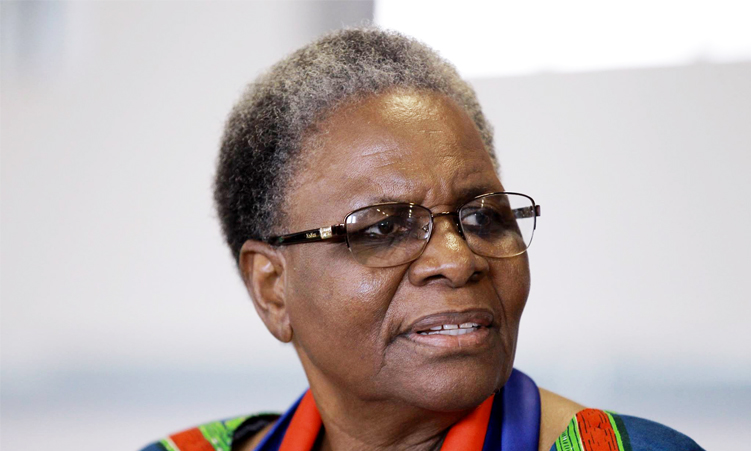THE ranking of Namibia as number five on the World Economic Forum (WEF) Africa Competitiveness report does not indicate that Namibia has fallen behind in terms of its growth competitiveness index.
This was said by the president of the Namibia Economic Society (NES), Mihe Gaomab II. Namibia, which previously had the number four position, was ranked fifth on the Growth Competitiveness Index results in the 2004 WEF Africa Competitiveness Report.The report was released at the WEF Africa Summit held in Maputo last week.Botswana was ranked first followed by Tunisia, South Africa and Mauritius.This report is the third of its kind produced so far, and Namibia has been fourth in the past two reports.The Africa Competitiveness Report highlights the prospects for growth, obstacles to improving competitiveness and the need to accelerate the pace of economic change.South Africa has surpassed Namibia due to the fact that it is now the leading country in terms of innovation and technological advancement and the increased level of competitiveness.South Africa seems to have escaped the years of below three per cent growth during the 1990’s as well and is now growing competitively with Namibia at above three per cent.South Africa’s public institutions are generally sound and there is currently a relative macroeconomic stability, apart from the crime still being reported occasionally.Gaomab explained that despite the ranking and being overtaken by South Africa, Namibia was performing well.He said, “Namibia’s growth dynamics are still sound and proper.Its growth has not fallen behind dramatically compared to 1995-1998 levels (growth recorded 3,3 per cent during 2000-2003 compared to 3,5 during 1995-1998).Namibia is also not doing bad at the technology front and is at fifth position.”Namibia is, however, on seventh position on the public institutions and macroeconomic indices beaten by the likes of Malawi and Gambia, amongst others.This, according to Gaomab, reflects the growing perception of increased levels of corruption and mismanagement at the parastatals and the local authorities.According to the World Economic Forum, these are also one of the crucial factors that are holding back African economies.The others are too much government involvement in the economy, relatively closed economies, weak public institutions and political instability.”Generally, however, Namibia is still growing in the right direction and has been steadfast in terms of ensuring political stability, well developed infrastructure, appropriate contractual systems and enforcements, rule of law, and relatively stable macroeconomic climate,” Gaomab said.The Africa Competitiveness Report 2004 also includes analysis of over 100 indicators which reveal trends and detailed country profiles showing the performances of 25 African countries.Namibia, which previously had the number four position, was ranked fifth on the Growth Competitiveness Index results in the 2004 WEF Africa Competitiveness Report.The report was released at the WEF Africa Summit held in Maputo last week.Botswana was ranked first followed by Tunisia, South Africa and Mauritius.This report is the third of its kind produced so far, and Namibia has been fourth in the past two reports.The Africa Competitiveness Report highlights the prospects for growth, obstacles to improving competitiveness and the need to accelerate the pace of economic change.South Africa has surpassed Namibia due to the fact that it is now the leading country in terms of innovation and technological advancement and the increased level of competitiveness.South Africa seems to have escaped the years of below three per cent growth during the 1990’s as well and is now growing competitively with Namibia at above three per cent.South Africa’s public institutions are generally sound and there is currently a relative macroeconomic stability, apart from the crime still being reported occasionally.Gaomab explained that despite the ranking and being overtaken by South Africa, Namibia was performing well.He said, “Namibia’s growth dynamics are still sound and proper.Its growth has not fallen behind dramatically compared to 1995-1998 levels (growth recorded 3,3 per cent during 2000-2003 compared to 3,5 during 1995-1998).Namibia is also not doing bad at the technology front and is at fifth position.”Namibia is, however, on seventh position on the public institutions and macroeconomic indices beaten by the likes of Malawi and Gambia, amongst others.This, according to Gaomab, reflects the growing perception of increased levels of corruption and mismanagement at the parastatals and the local authorities.According to the World Economic Forum, these are also one of the crucial factors that are holding back African economies.The others are too much government involvement in the economy, relatively closed economies, weak public institutions and political instability.”Generally, however, Namibia is still growing in the right direction and has been steadfast in terms of ensuring political stability, well developed infrastructure, appropriate contractual systems and enforcements, rule of law, and relatively stable macroeconomic climate,” Gaomab said.The Africa Competitiveness Report 2004 also includes analysis of over 100 indicators which reveal trends and detailed country profiles showing the performances of 25 African countries.
Stay informed with The Namibian – your source for credible journalism. Get in-depth reporting and opinions for
only N$85 a month. Invest in journalism, invest in democracy –
Subscribe Now!






